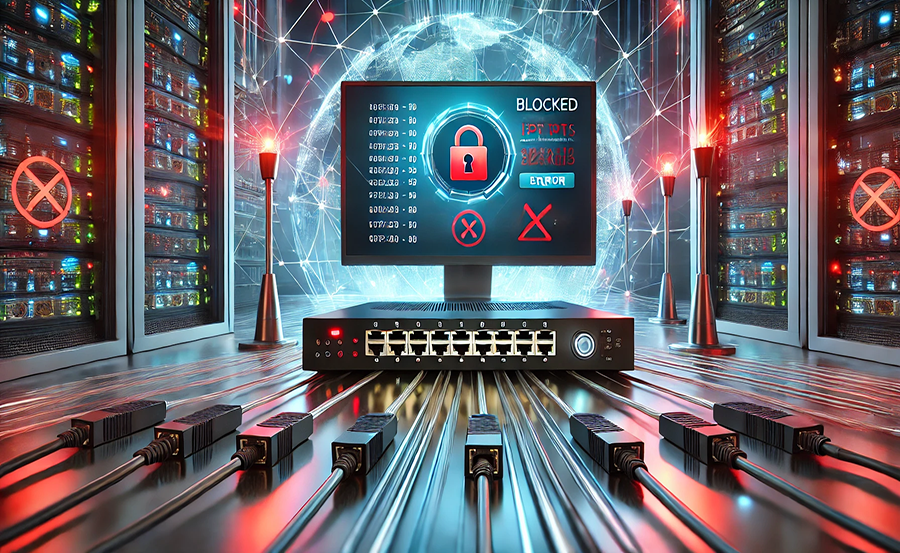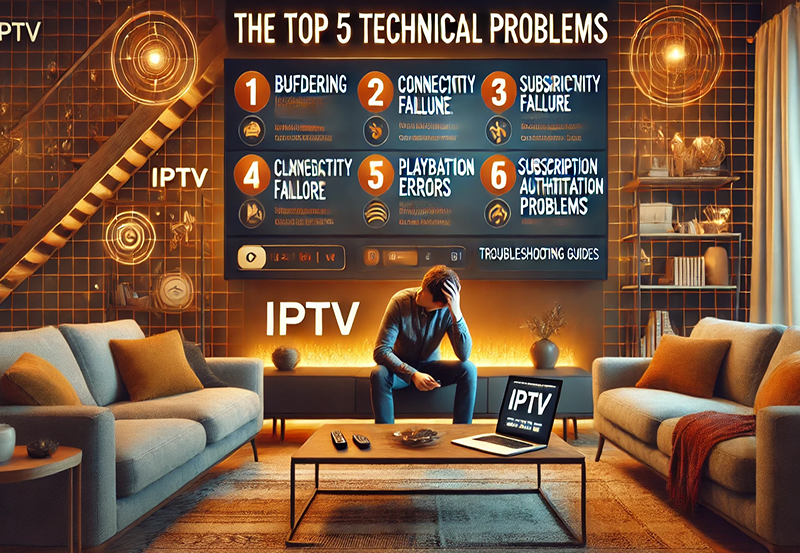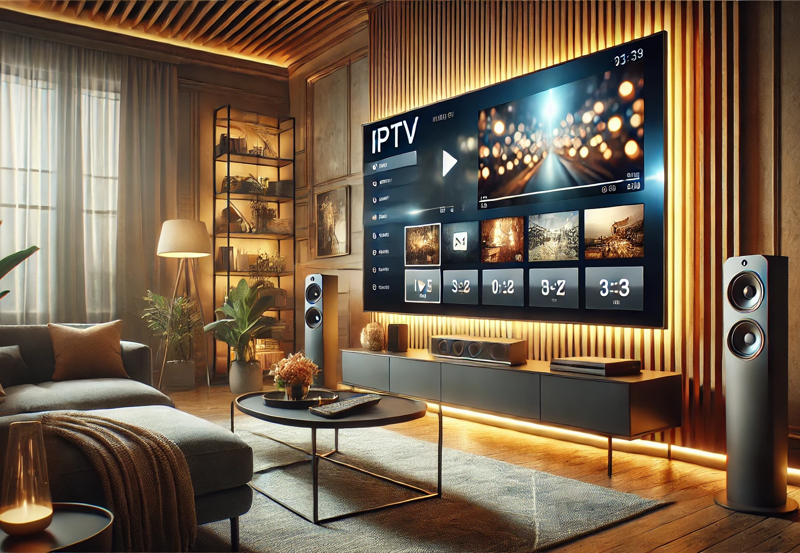For many, IPTV represents the pinnacle of entertainment tech. Offering unprecedented access to a sea of content, IPTV has steadily gained traction, revolutionizing how we consume media. Yet, even the most advanced technology isn’t without its hurdles. Today, we delve into a persistent issue plaguing IPTV users: blocked ports. Solving this challenge is key to ensuring seamless streaming experiences, whether you’re a newbie or a seasoned enthusiast seeking to enhance your viewing pleasure.
Understanding IPTV: A Brief Overview
Before diving into the technical nitty-gritty, it’s crucial to understand what IPTV—or Internet Protocol Television—truly entails. IPTV differs significantly from traditional cable or satellite broadcasting methods. It relies on the internet to transmit television content, opening doors to a customizable and flexible viewing model. While this technology is groundbreaking, it doesn’t come without its own set of complex issues, among which blocked IPTV ports are prevalent.
What is IPTV?
At its core, IPTV is essentially the delivery of television content over the internet. Instead of using traditional signals, IPTV uses a broadband connection to stream live TV and on-demand content. This technology is rapidly changing how viewers interact with media, making it an attractive option for those looking to cut ties with conventional cable providers.
Pro Tip:
Looking for the Best IPTV Provider? Access thousands of channels with Helix IPTV for premium entertainment.
How it Differs from Traditional TV
Think of IPTV as a modern twist on television. Traditional TV relies on broadcasting signals to your cable box, but IPTV takes a different approach, offering content over a network of internet protocol suites. This shift not only provides greater control over what you watch but also when and where you watch it. Streaming options become vastly more flexible, allowing personalized content delivery to suit individual preferences.
The Anatomy of IPTV Ports
To fully grasp why and how IPTV ports can become blocked, a foundational understanding of what these ports are is necessary. Ports are, in essence, the entry and exit pathways for data packets on an internet network. In the context of IPTV, these ports facilitate the reception and streaming of video data. A blocked port can severely hamper this process, often leaving viewers with disrupted or inaccessible streams.
Function of IPTV Ports
IPTV ports operate as conduits between your streaming device and the internet servers providing your media content. They ensure that data flows smoothly, translating to uninterrupted, high-quality viewing experiences. The ports interpret streaming requests and execute them by channeling the data through defined pathways tailored specifically for video content. Any interruption can disrupt this flow and create an unsatisfactory user experience.
Common Port Numbers Used in IPTV
Typically, IPTV services operate on a variety of scheduled ports, most commonly using port numbers such as:
- UDP: 1234
- TCP: 8080
- RTSP: 554
These ports, among others, are integral for ensuring that data is properly channeled and not lost in transit. Understanding these numbers can significantly aid in troubleshooting and fixing blocked IPTV ports.
Why Do IPTV Ports Get Blocked?
The reasons behind blocked IPTV ports can vary. Understanding these causes is the first step towards rectifying the problem and ensuring uninterrupted streaming. Fundamentally, port blocking occurs when an ISP or firewall restricts data packets associated with IPTV, thereby causing disruptions or complete access denial.
Interference from ISPs
Internet Service Providers (ISPs) often cap or throttle streaming services due to bandwidth concerns or network policies. In some cases, they might block specific ports to control network traffic, inadvertently affecting your IPTV experience. Being aware of ISP interference is crucial, as it directs how you approach potential solutions.
Firewalls and Security Protocols
Your local network’s firewall, while protecting against potential threats, can also inadvertently block IPTV ports. Firewalls are designed to screen incoming and outgoing packets based on preset security rules. Sometimes, legitimate IPTV data packets might be flagged due to stringent settings, resulting in blocked ports.
Malware and DDoS Attacks
On more rare occasions, malware or Distributed Denial of Service (DDoS) attacks could lead to blocked ports. These malicious activities can overwhelm your network, causing it to shut down certain ports as a defense mechanism. While not as common, being aware of this helps in formulating a more comprehensive approach to troubleshooting.
Diagnosing Blocked IPTV Ports
Detecting a blocked IPTV port can sometimes be trickier than it seems. The symptoms of a blocked port may mimic other technical issues, making accurate diagnosis essential. Recognizing the signs and applying the right tools can pave the way to effective solutions.
Symptoms of Blocked Ports
Typical symptoms that suggest blocked ports include:
- Interrupted streaming service
- Complete inability to connect to servers
- Unusually long buffering times
These indicators, while not definitive on their own, can signal issues with your IPTV ports when experienced consistently.
Using Network Tools to Diagnose Issues
Several network diagnostic tools exist that can aid in identifying blocked IPTV ports. Applications like traceroute or network analysis software can highlight network bottlenecks, helping you pinpoint where port blocking might be occurring. Running a series of these tests can provide valuable insights and guide further troubleshooting efforts.
Consulting Your ISP for Assistance
When in doubt, reaching out to your ISP can sometimes provide clarity. Discussing bandwidth throttling policies or specific network settings with them might reveal the root cause of the block, making it possible to work together to resolve the issue.
Methods to Unblock IPTV Ports
Once you’ve identified that there is indeed an issue with your IPTV ports, it’s time to explore solutions. Several methods can be employed to unblock ports, ranging from basic troubleshooting techniques to more advanced configurations.
Adjusting Firewall Settings
Setting incorrect parameters on your firewall could be the reason why your IPTV ports are blocked. Adjusting your firewall settings to whitelist IPTV applications or specific ports can help mitigate this issue. It’s advisable to know your way around firewall configurations to avoid creating new security vulnerabilities.
Configuring Port Forwarding
Port forwarding is a reliable method to reroute ports and ensure IPTV signals reach their intended destination. By configuring port forwarding rules on your router, you can open up specific ports used by IPTV services, effectively bypassing blockages.
Steps for Port Forwarding
Typically, port forwarding involves:
- Accessing your router’s admin panel via a web browser.
- Navigating to the port forwarding section.
- Entering required port numbers related to your IPTV service.
- Saving the changes and rebooting the device.
Despite seeming technical, following these steps can considerably enhance your viewing pleasure by restoring consistent and high-speed streaming.
Tech Support and Professional Assistance
If all else fails, seeking professional help might be the best route. Technology experts offer services that can dissect network issues effectively, offering tailored solutions that might be beyond the scope of basic user knowledge.
When to Contact a Tech Professional
Knowing when you need a professional is essential. If your DIY methods have hit a snag and you’re still facing consistent issues, it may be time to consult with an expert. Look for tech support services that specialize in home networking and internet services for optimal results.
Understanding the Costs Involved
Enlisting professional aid can lead to unblocked IPTV enjoyment at a cost. Understanding the potential expenses and weighing them against the inconvenience of disrupted service is necessary for deciding on this option.
Finding Reliable Tech Support
Ensure you’re partnering with reputable service providers in the field. A thorough assessment of the technicians’ credentials and client reviews can serve as a safeguard against unsatisfactory service or exorbitant service charges.
The Future of IPTV: An Evolving Landscape
As IPTV continues to grow in popularity, keeping abreast of its evolution is crucial. Innovations in streaming technology and changes in regulatory frameworks will influence how users access and enjoy IPTV services in the coming years, impacting things like port blocking and network infrastructure.
Upcoming Technological Advancements
The continuous advancement of technology assures us that IPTV is set for more transformative shifts. Enhanced data compression techniques, more efficient protocols, and increased adoption of AI could make IPTV more reliable and less prone to disruptions, including port blocking issues.
Potential Regulatory Changes
The legal landscape around IPTV is ever-changing. With growing concerns about streaming rights and internet neutrality, future regulations may impact how ISPs handle port management and traffic prioritization, offering some hope for fewer blocked ports.
What Users Can Expect
For users, these shifts spell a more robust streaming experience. Keeping an eye on these trends can ensure that you remain well-prepared and adaptable to changes, maintaining uninterrupted IPTV access no matter the hurdles on the horizon.
FAQ: Common Questions About IPTV Blocked Ports

1. What exactly causes IPTV ports to be blocked?
IPTV ports can be blocked for several reasons, including ISP throttling, stringent firewall settings, and security threats like DDoS attacks. These factors can hinder the smooth flow of data packets necessary for quality IPTV streaming.
2. How can I determine if my IPTV ports are blocked?
The symptoms of blocked IPTV ports include buffering, access issues, and interrupted service. Using diagnostics tools like network analysis software can offer insight into potential port blockages within your network.
3. What are simple ways to fix blocked IPTV ports?
Basic solutions involve adjusting firewall settings and configuring port forwarding on your router. These methods align port access with your IPTV service, opening up the pathways necessary for seamless streaming.
4. Can IPTV stream without unblocking ports?
While possible, streaming IPTV without unblocked ports will likely result in a subpar experience characterized by lag and frequent service interruptions. Unblocking ports is recommended for optimal functionality.
5. Is seeking professional assistance worthwhile?
If basic troubleshooting does not yield results, hiring a professional can uncover complex network issues that may be beyond standard user capabilities, offering efficient, tailored solutions.
6. How do ISPs influence IPTV port accessibility?
ISPs influence port accessibility by enforcing bandwidth restrictions and blocking specific ports as part of network traffic management. Understanding your ISP’s policies can help when addressing blocked port issues.
NVIDIA Shield TV vs Android TV: Performance





